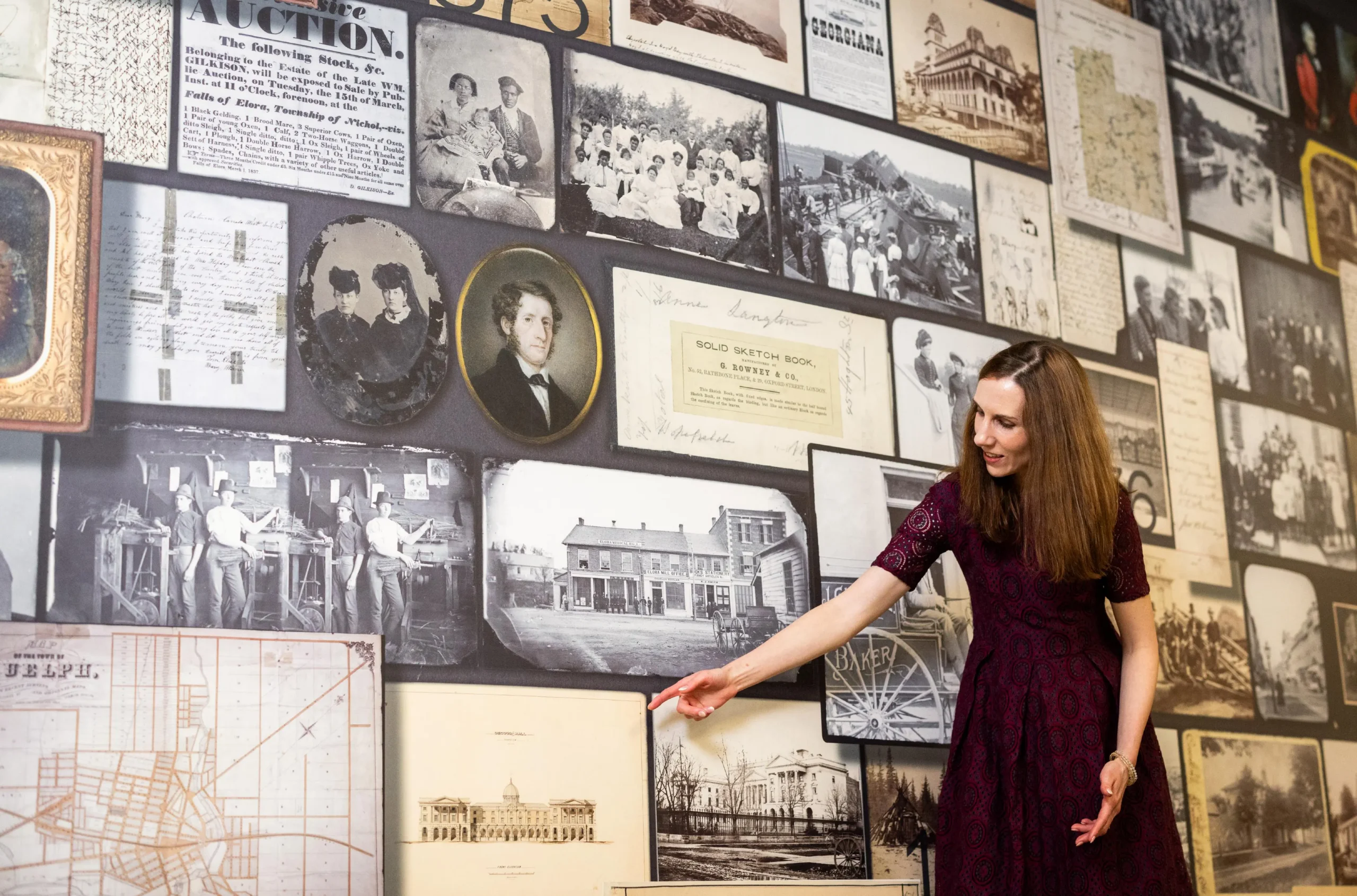Tours
Take a free guided tour of one of the top archival facilities in Canada.
Let our knowledgeable staff introduce you to the work we do at the Archives of Ontario to collect, preserve and make available the records of the province.
Our tours are perfect for students, history lovers and curious minds. We offer behind-the-scenes access to the following spaces:
- Exhibition area, where you can learn about fascinating stories from Ontario’s past.
- Reading Room, where we’ll explain how you can access and engage with our collections.
- Preservation Services Lab, where you’ll learn how our conservators preserve the records of Ontario for present and future generations.
- Records storage vault, where you can experience how we protect the most valuable, fragile and frequently requested items in our collections.
Duration: 1 hour
Group size: 5-20 people
We are happy to work with you to accommodate shorter tour times or multiple tours for groups of up to 40 people.
Our tours are accessible for individuals with limited mobility.
Book a tour
Contact us to book a tour for your group.
Please provide the following information:
- your name
- group name or affiliation (if applicable)
- preferred date or date range
- number of attendees
- any accessibility considerations
- if you want a 1-hour researcher orientation
A staff member will respond shortly to confirm your details.
Book a tourResearcher orientations
We offer group orientation sessions hosted by our knowledgeable reference archivists. We’ll prepare you with everything you need to know to start researching our collections with confidence.
Our sessions are perfect for university classes, genealogical chapters or any group interested in learning the basics about archival research.
Our orientation sessions cover the following topics:
- what archivists do
- how we organize our collections
- how to search and use our online Collection Search database
- how to access items in person and online
- how to handle original records
We can also highlight record series that are of particular interest to your group.
Duration: 1 hour
Group size: 10-30 people
Book an orientation
Contact us to book a researcher orientation session.
Please provide the following information:
- your name
- group name or affiliation (if applicable)
- preferred date or date range
- number of attendees
- accessibility needs
- topics of interest you’d like us to discuss
- if you would like to include a tour (1 hour duration)
A staff member will respond shortly to confirm the details of your orientation session.
Book an orientationOnline resources
Learn more about how our collections work.
Find out which items we have that you can access online.

